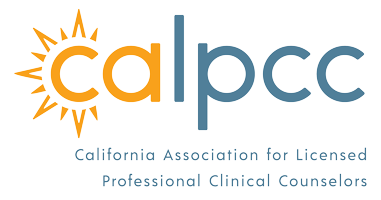Contact Us © CALPCC |
About Us
Professional CounselingCounseling is a professional relationship that empowers diverse individuals, families, and groups to accomplish mental health, wellness, education, and career goals.The definition above of counseling, known as the consensus definition, has been endorsed by 29 professional counseling professional organizations as of April 2012.What is Professional Counseling?“Professional counseling is the application of mental health, psychological, or human development principles through cognitive, affective, behavioral, or systemic intervention strategies that address wellness, personal growth, or career development, as well as pathology. The primary purpose of counseling is to empower the client to deal adequately with life situations, reduce stress, experience personal growth, and make well-informed, rational decisions.” (U.S. Dept. of Human Services, Mental Health, United States, 2002) “Licensed professional counselors (or in some states, “licensed clinical professional counselors” or “licensed mental health counselors”) provide mental health and substance abuse care to millions of Americans. Licensed professional counselors (LPCs) are master’s level mental health service providers, trained to work with individuals, families, and groups in treating mental, behavioral, and emotional problems and disorders. LPCs make up a large percentage of the workforce employed in community health centers, agencies, and organizations, and are employed within and covered by managed care organizations and health plans. LPCs work with active duty military personnel and their families, as well as veterans.” (American Counseling Association, Who Are Licensed Professional Counselors) How Are Professional Counselors Qualified?According to the American Counseling Association, more than 162,000 professional counselors are licensed or certified in all 50 states and the District of Columbia. Professional counselor education and training standards for licensure are on par with those of the other two master’s level mental health providers – marriage and family therapists and clinical social workers. State licensure requirements for professional counselors typically include:
What do LPCs do?“The practice of professional counseling includes, but is not limited to, the diagnosis and treatment of mental and emotional disorders, including addictions; psychoeducational techniques aimed at the prevention of such disorders; consultation to individuals, couples, families, groups, and organizations; and research into more effective therapeutic treatment modalities. Counselors’ training in the provision of counseling and therapy includes the etiology of mental illness and substance abuse disorders, and the provision of the established, research-based “talk therapies” of cognitive-behavioral, interpersonal, and psychodynamic therapy. Counselors’ education and training is oriented toward the adoption of a truly client-centered, approach to therapy.” (American Counseling Association, Who Are Professional Counselors) What is a Counseling Specialization?As in other professions, such as medicine and law, Professional Counselors meet requirements for the general practice of counseling and may develop an area of expertise to work with special populations or issues, requiring advanced knowledge that is documented by coursework, national certification or a state credential. How do other states license master's-level mental health professions?With legislation that passed in 2009, all 50 states now license LPCs and all 50 states now license MFTs. |
